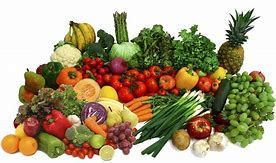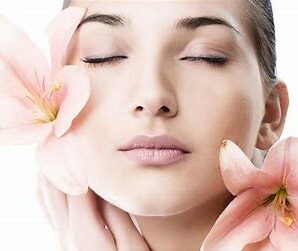HOW IMPORTANT IS A HEALTHY DIET?
The Need for Eating a Good Diet Is Essential for Your Skin’s Appearance. Whole Foods Supplements and Vitamins are not intended to be a dietary substitute! In short, Whole Foods Supplements And Vitamins cannot replace all of the nutrients and benefits of eating regular meals. It is highly recommended to eat good regular meals daily to receive all your nutrition!
Eat Regular Meals

Regular meals are the essence of your diet, not Whole Foods Supplements and Vitamins. What Whole Foods Supplements and Vitamins can do is plug the nutritional gaps in your diet. Furthermore, it is short-sighted to think your vitamin or mineral supplement is the ticket to good health! Whole Foods Supplements and Vitamins should not replace eating regular meals.
Note: “If you need good nutrition to help your skin, it is always better to get your nutrients from food. Your food contains thousands of phytochemicals, fiber, and more. This works together to promote good health. Also, it cannot be duplicated with a pill or a cocktail of supplements.”
When To Use Vitamins Or Supplements?
However, it is beneficial to supplement your good diet with a mineral or vitamin to ensure your body is getting all the nutrients it needs.
Whole Foods Supplements And Vitamins. What Can Vitamins and Mineral Supplements Do For Your Health?
Some of the food on your plate falls short and doesn’t include essential nutrients like calcium, potassium, vitamin D, and vitamin B12. Therefore, a supplement can help take up the nutritional slack. Vitamins and mineral supplements can also help prevent deficiencies that can contribute to chronic conditions.
Your skin can play an important role not only in how you look but also in how you feel. Therefore, healthy skin maintains a proper barrier between your internal organs and your environment. It helps to keep pathogens and other toxins out. Moreover, multiple factors, including genetics, hygiene, and other lifestyle habits, contribute to the health of one’s skin. On the other hand, poor nutrition harms your skin tissue.
Fats
Fats play an essential role in your skin’s health. Essential fatty acids, Omega-3, and Omega-6 contribute to healthy skin. Omega-6 fatty acids promote healthy skin growth. Omega-3 fatty acids also help to prevent dry skin. Consequently, a poor diet can put you at risk of an Omega-3 fatty acid deficiency. As a result, you might notice skin and hair problems.
Biotin, also known as Vitamin B-7, can help to prevent hair loss and to strengthen nails. It helps with cancer treatments too. Moreover, Biotin is instrumental in the treatment of diabetes, neurological diseases, as well as heart and skin diseases.
B-Complex vitamins enhance beauty by promoting healthy hair, skin, and nails. It achieves this by counteracting damage caused by free radicals. These are the molecules that break down healthy cells and contribute to aging and disease. If you are suffering from chronic skin issues, or even have a dull and unhealthy complexion, the cause may be a Vitamin B deficiency. Vitamin B-12 helps to regulate your skin’s pigment production and location. In short, this will prevent hyperpigmentation which is the darkening of the skin in certain parts of the body.
Click On The Direct Link Here To See What Allies Have to Offer for Your Skin! >https://www.anrdoezrs.net/click-8268793-13914692
Vitamins

Vitamin C, or ascorbic acid, maintains your skin’s health. Together with Vitamin E, it protects your skin cells from sun damage. Also, consuming Vitamin C helps you make collagen, a protein important for your skin’s structure. Therefore, a diet poor in Vitamin C puts you at risk of developing scurvy, a condition that causes skin lesions.
Ten foods rich in Vitamin C are guavas, red pepper, kiwi, oranges, grapefruit, green pepper, vegetable juice, strawberries, brussels sprouts, and cantaloupe.
Vitamin D helps maintain healthy skin. Most importantly, it controls the growth and development of cells in the deep layers of your skin. This will protect your skin from the sun’s harmful rays. On the other hand, low Vitamin D levels leave you more vulnerable to sun damage. Also, it can negatively affect the health of your skin.
There are 3 ways to get Vitamin D: food, sunlight, and supplements. In brief, if you are not getting enough sunlight, you will need to take supplements to cover your Vitamin D shortage.
Foods That Contain Vitamin D3 Are:
- Salmon
- Tuna:
- Soy milk:
- Orange juice:
- Low-fat milk:
- Cereals:
- Eggs:
- Swiss cheese:
Note: In short, one of the Vitamin D benefits is to act as a powerful antioxidant. Vitamin D can play an important role in preventing the premature aging of skin and damage to the skin structure!
Vitamin A thickens and stimulates the dermis where your collagen, elastin, and blood vessels are. In addition, it reduces wrinkles and increases blood flow to the surface of the skin. Vitamin A increases the deposition of collagen. Therefore, it slows the normal aging breakdown of your collagen and elastin. Vitamin A must be replaced daily for your skin to appear healthy and resilient.
Consumption
According to the Institute of Medicine, men should consume 90 milligrams of Vitamin C daily. Women should consume 75 milligrams. All adults need 15 micrograms of Vitamin D each day. For Vitamin A, the U.S. recommended dietary allowance (RDA) for adults is as follows: 900 micrograms daily (3,000 IU) for men and 700 micrograms daily (2,300 IU) for women.
The Six Best Essential Vitamins and Must-Haves for Your Skin Are:
- Vitamin A
- B-Complex
- Vitamins C, D, and E
- Biotin
Minerals
Zinc deficiencies can negatively impact your skin. Normal zinc levels help support healthy skin cell turnover. Consequently, zinc deficiency can cause abnormal skin pigmentation. Further, this can lead to skin lesions and put you at risk for dermatitis. Low levels of zinc can also cause hair loss and stunt nail growth. On balance, men need 11 milligrams of zinc daily, while women require 8 milligrams.
Selenium is an essential mineral involved in protecting your skin from the sun. In short, a diet low in selenium can cause problematic skin conditions. Individuals suffering from selenium deficiency face a higher risk of skin cancer. Similarly, a selenium deficiency can slow hair growth, lead to hair loss, and prevent normal skin cell development. According to the Office of Dietary Supplements (ODS) at the National Institutes of Health (NIH), your diet should include 55 milligrams of selenium daily.
Whole Foods Supplements And Vitamins – Eating Right for Healthy Skin
By and large, one needs to maintain a well-balanced diet to help prevent nutrient deficiencies that can affect your skin. Fruits and vegetables provide you with vitamin C. In addition, fortified dairy products boost your intake of vitamin D. You should also add fish, such as salmon or tuna, to your diet. They will provide beneficial omega-3 fatty acids, as well as vitamin D and selenium. Likewise, eat nuts for a skin-healthy snack rich in zinc, selenium, and healthy unsaturated fat, including omega-3s.

Note: If you suffer from a skin condition you think might be related to a nutrient deficiency, seek medical attention. Your doctor can determine the underlying cause and then recommend an appropriate treatment to complement a healthy diet.
In summary, whether your skincare concerns are anti-aging treatments or acne, there’s a supplement solution to enhance your skincare regimen. In addition, skincare supplementation, combined with topical skincare, is part of a good healthy lifestyle.

Hi Mick your knowledge is very good and your article very nice. Keep up the good work! Also, I am following your website.
Thank you, Atif, I appreciate your comments.
I did not know about zinc deficiencies and what it can do to the skin and hair! This was great information for me, since loosing most of my hair due to a prescription I have been taking. I will be looking into getting a better multi vitamin that has zinc! Any recommendations?
Zinc is important for normal cell growth. Zinc nutrition deficiency weakens the cells, which can result in hair loss and lesions on the skin. This is one of the prominent signs of zinc deficiency. Those who suffer a zinc deficiency and struggle with hair loss can take a zinc supplement. The daily recommendation is 11 milligrams. I would just recommend getting either a zinc supplement or a multi-vitamin that includes zinc in it. You’ll need the 11 mg daily. Keep in mind that too much zinc can cause hair loss as well.
I have a very healthy diet but used to take a number of supplements kind of as insurance that I’d never be vitamin deficient. About two years ago I started hearing that supplements can actually be bad for you because they aren’t government regulated and possibly could contain harmful ingredients. When I mentioned this to my doctor at my annual check-up he agreed that for me supplements weren’t necessary since i didn’t have any deficiencies in my blood work-up.
Lynn, Vitamin supplements are safe. They’ve been formulated to help the skin. What supplements were you taking in the past? I wouldn’t take any supplements that are not good for you. As one gets past age 50, I do recommend taking supplements. Ask your doctor what he or she recommends for you to take.
Thank you for an interesting post, I’m never sure which vitamins are in which foods so this was good to read!
I also wasn’t aware there were different types of vitamin D either. Is it only D3 that is in the food types you listed? What are types D1 and D2 in and should we be getting equal amounts of all of them?
Thanks
Louise
Thanks for you comments.
German researcher Adolf Windaus first discovered 3 forms of vitamin D, which he called D1, D2, and D3. It was later learned that the vitamin D1 was a mixture of compounds rather than a pure vitamin D product, so the term D1 is no longer used.
The term “Vitamin D” now refers to several different forms.
The two forms important in humans are : ergocalciferol (vitamin D2) and cholecalciferol (vitamin D3). Vitamin D2 is a synthetic form (man made) and Vitamin D3 is the internal form that we make. Vitamin D3 is the type that most experts believe should be utilized in clinical practice Beef liver, cheese, egg yolks and fatty fish, which contain small amounts of D3, are the best dietary sources of D3.
Hello here, thanks for information regarding skin care. Yes, you are right about the importance of nutrition. Without mineral, vitamins, proteins and fats we would lack energy and vitality. The blood brings nutrients to the skin, organs and tissues. Without right amount of nutrients, our skin and rest the body could suffer.
No fun, yes?
I never heard about your mentioned supplements. Who is Allies of Skin? It is just a name of the brand?
I would like to check out because I am interested in high quality products. Thanks for letting know.
All the best, be healthy and wealthy, Nemira.
Allies of Skin is the name of the brand of skin care products. It is one of the top brands in the skin care field. The vitamins I mention are the best ones to use for your skin.